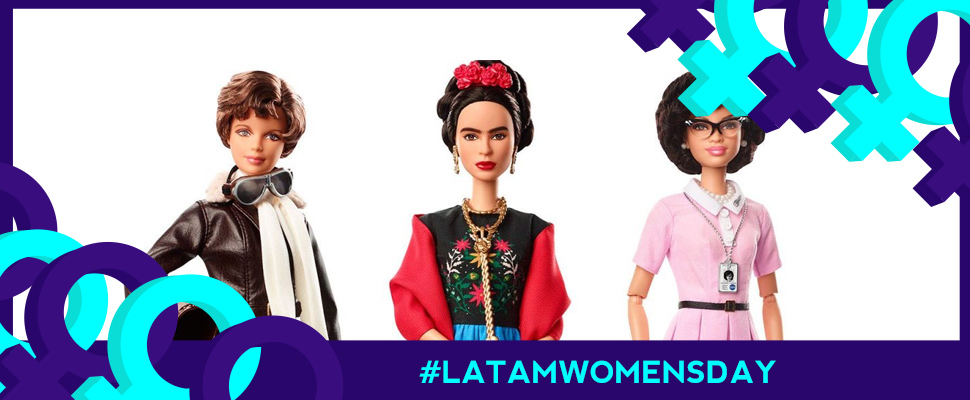International Women’s Day: an ode to those who have propelled us forward
Latin American Post joins companies like Barbie and Google in celebrating women who have made and continue to make history

Every March 8th we commemorate International Women’s Day, which according to internationalwomensday.com, “is a global day celebrating the social, economic, cultural and political achievements of women. The day also marks a call to action for accelerating gender parity. International Women's Day (IWD) has occurred for well over a century, with the first March 8 IWD gathering supported by over a million people in Austria, Denmark, Germany and Switzerland. Prior to this the Socialist Party of America, United Kingdom's Suffragists and Suffragettes, and further groups campaigned for women equality”.
Companies that believe there is still a long way to go in terms of women’s rights have turned to different ways of celebrating this day, to commemorate those who have come before us and to empower little girls today.
Barbie: a collection of role models
Barbie dolls used to be controversial when it came to women’s rights, primarily because the company promoted an unrealistic ideal of beauty that girls were exposed to from a very young age. In recent years, the company has taken a turn, and look to release dolls that will set examples and empower girls to be whoever they want to be.
This year, Barbie released a collection of Inspiring Women for IWD, with figures that represent:
-
Frida Kahlo: the Mexican artist is remembered worldwide, not only for her influence in the art world, but for daring to break imposed gender stereotypes throughout her life. Kahlo is an icon of Mexican culture, and a woman who inspires us all to not apologize for who we are.
-
Amelia Earhart: as the first female aviator to fly over the Atlantic Ocean, Earhart is also an icon who shows young girls they can do anything they set their mind to. As stated in the Barbie website, “In 1937, in what was to be a record-making flight as the first woman to fly solo around the world”.
-
Katherine Johnson: made famous thanks to the film “Hidden Figures”, Johnson was a mathematician at NASA who’s work allowed putting the first man to walk the Moon. As Barbie puts it, “Her flawless calculations helped ensured that the Apollo astronauts landed and returned safely from their voyage to the moon”. She also was an African American citizen, who had to face the struggles of segregation while at NASA.
Barbie also has dolls of strong women who are changing the world today, such as: gymnyst Gabby Douglas, Mexican golfer Lorena Ochoa, snowboarding champion Chole Kim, boxer Nicola Adams Obe, model and body activist Ashley Graham, principal ballerina Misty Copeland, among many others. Embracing women of all different backgrounds, religions, races, and body types, Barbie looks to provide girls with role models because “Imagining she can be anything is just the beginning. Actually seeing that she can makes all the difference”.
Google Doodle: comic strips to share stories
This year, for IWD Google has chosen to publish an interactive doodle with comic strips drawn by female illustrators from all over the world. A few of them are:
-
Estelí Meza: this Mexican illustrator has worked in multiple projects and books. As Meza posted in her Instagram: “The objective [of the Google doodle] was narrating a real story from a concept. I was assigned the word ‘healing’”. Her doodle is about her aunt, who overcame cancer.
-
Laerte: she is a Brazilian cartoonist. Laerte is known because she was assigned the male gender at birth, but transition to a woman later in life. In this occasion, she tells a comical love story through her strip, where the man finds out of her initial identity, and freaks out, but comes back to her.
-
Karabo Poppy Moletsane: she is a South African illustrator who works “Preserving the African Aesthetic”, as stated in her Instagram bio. She has worked in diverse projects, from designing T-Shirts, to creating prints. Her doodle is about a girl named Ntsokai who breaks gender stereotypes of her tradition by performing a coming of age ritual that used to be reserved for men.
Latin American Post | Laura Rocha Rueda





